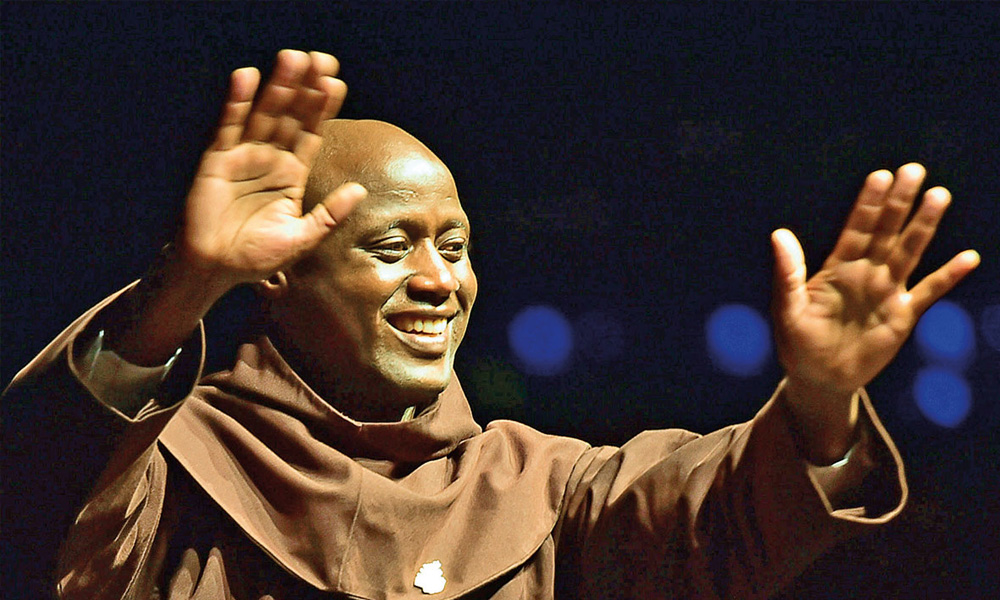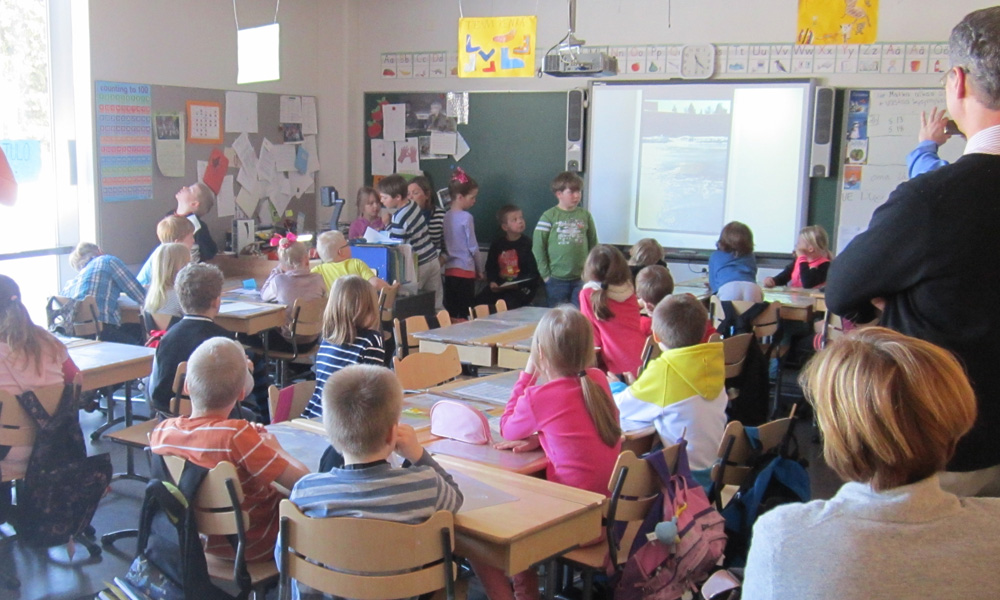ADUN SPEAKS | A maths and physics teacher from a remote village in Kenya won the prestigious Global Teacher Prize this year. Peter Tabichi was announced as the recipient of the US$1 million prize at a ceremony on March 23 in Dubai, beating 10,000 nominations from 179 countries.
Tabichi was faced with desperately limited resources at his schools, including a lack of books and teachers. Classes were taught in groups of up to 70 or 80. The lack of a reliable internet connection meant he had to travel far to a cybercafé to download material for his science lessons.
Many of his students have to walk 7km along bad roads to reach the school, which can become impassable during the rainy seasons. On top of that, he donated 80 percent of his salary to help support students who could not afford uniforms or books.
Almost all the students were from very disadvantaged families. Many were orphaned or had lost a parent. Drug abuse and teenage pregnancies were common.
Despite all these, Tabichi’s students had beaten students from the best schools to win national and international science competitions, including an award from the Royal Society of Chemistry in the United Kingdom. Many children who were expected to drop out of schools, and girls supposed to be married off early, had now gone on to college or universities.

What Tabichi (above) achieved confirmed that good teachers with love and care can make all the difference, whatever the limitations. Dedication and concern for the children can overcome all obstacles.
Malaysian teacher Muhamad Khairul Anuar Hussin from Johor Bahru was nominated and shortlisted for the Global Teacher Prize this year.
In 2017, an English teacher from Sabah, Mohd Sirhajwan Idek, won the prestigious International Innovation and Entrepreneurship Excellence in Teaching Award in Paris.
Our Education Minister Maszlee Malik himself emotionally paid tribute to his teacher Ustaz Sakijan Muri for inspiring him to become a minister when delivering his 2019 mandate in January.
Recruiting the right people to teach
Finland has one of the best education standards in the world with consistently outstanding Programme for International Student Assessment (PISA) results. Its education policies are highly praised, but the real success is due to having good teachers.
In Finland, teaching programmes are the most rigorous and selective professional courses in the entire country. Highly prestigious, the teaching profession is immensely popular, so much so that only one in 10 applicants is accepted each year.
The “lucky” successful applicants are selected based on various criteria across a broad spectrum, and are not those with the highest academic scores. Students who did the best academically, are not necessarily the best teachers. Similarly, the best students won’t necessarily make the best doctors.
Successful education systems are more about getting the right people to become career-long teachers. This can be seen by the fact that many of the best students do not become the best teachers.
They need to have the love for working with children, patience for dealing with their disobedience and rebellions, and the passion to teach, whatever the ups and downs and setbacks they may encounter in their careers and their personal lives.

Secondly, with good teacher training. In Finland (above), the teachers are thoroughly trained and prepared for the great challenges ahead.
Many of us parents will know the difficulties of dealing with our two or three children at home. Now, think of working with 30 to 40 children of very diverse backgrounds and problems. Each child has his or her own idiosyncrasies.
In Finland, they are required to complete an advanced, research-based master’s degree in teacher education lasting five to six years before they are allowed to teach. Teachers are also required to participate in in-service training every year to keep upgrading themselves.
Thirdly, full trust in teachers. Finnish teachers are given a high degree of trust and autonomy in their jobs. They are given a great deal of responsibilities and unfettered flexibility in what and how they teach.
Every teacher and every child is a unique combination and requires an individual approach. There are no specific pre-prepared plans or instructions, no sample questions or answers to follow. Teacher performance isn’t observed and graded. The teachers do not need to provide evidence to prove their teaching.
Instead, annual development discussions with school heads provide feedback on the teachers’ own assessment of their strengths and weaknesses.
In this way, the teachers can adjust and adapt their teaching to be specific to the needs of a particular class and children, based on the specific community and culture of the community where the schools are located.
Finally and most importantly, good teachers will impart self-confidence and positive attitudes for the children to take up future challenges. We want our next generation to be educated holistically, aside from learning from books and standard examination answers.
In Malaysia, the number of teachers in government and government-aided schools were 422,369 in 2016. So we need many good teachers to bring up our education standards.
In summary, the most important key to improving our education standard lies in getting many good teachers. The government must concentrate on making the teaching profession attractive and prestigious.
It is a noble profession, but we need to get the most suitable applicants passionate about teaching and provide them with the most rigorous training, and to trust them with their teaching abilities by allowing them flexibility in the way they conduct their classes.
We need to address the concerns of the teachers, to improve the job environment and promotion prospects, cut down bureaucracy and paperwork, as well as accord them due respect and recognition for their work and sacrifices throughout their careers.
KO CHUNG SEN is state assemblyperson for Kepayang, Perak.
The views expressed here are those of the author/contributor and do not necessarily represent the views of Malaysiakini.

